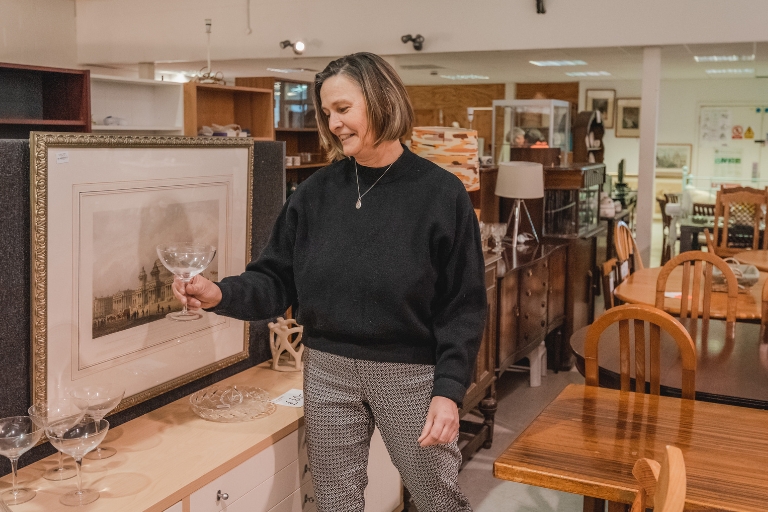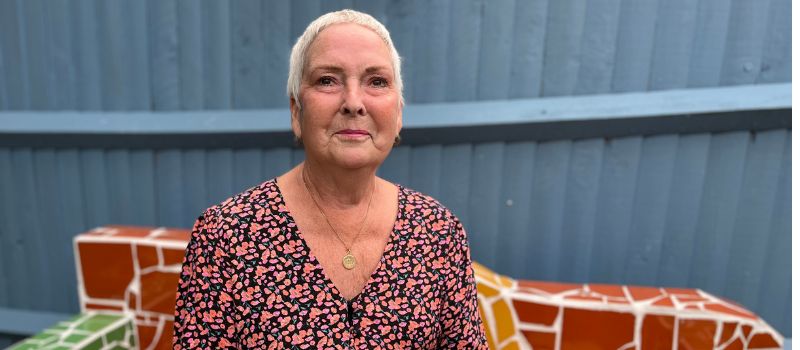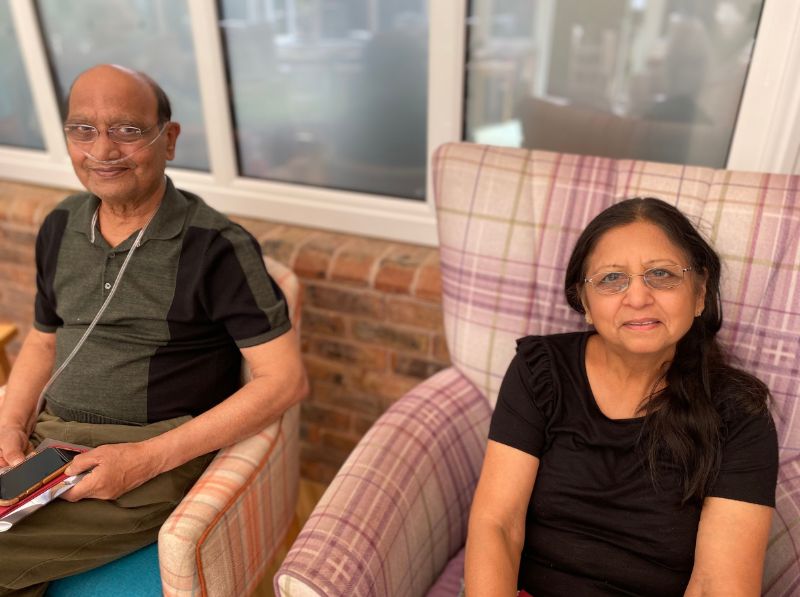“(Not) living Well With Alzheimer’s”
“I could have helped my wife, Muriel a lot sooner than I did, if only I’d known the best way how to have done so.
Muriel was diagnosed with Alzheimer’s
Her symptoms’ were probably showing back as early as 2008; she’d always been very smart in her appearance, and she was a very caring person, always ready to help others, a wonderful wife and mother to our two sons and a devoted grandmother to her five grandchildren.
Some of the first signs of Muriel’s impending disease were when we used to have our granddaughter stay with us. She had certain belongings that we’d brought for her but Muriel started arguing that some of the items belonged to her, not our granddaughter.
Over the next few years Muriel’s short-term memory steadily got worse, and in 2012, she began showing signs of verbal and physical aggression, and outbursts of disagreement, if anyone said anything she thought was wrong. Muriel wouldn’t allow me to go to our GP with her. Infact she told other family members it was me, who had a bad memory.
Eventually, one of our sons managed to persuade his mum to go to the doctors.
Even without running any tests the doctor could tell Muriel had a problem. When tests were done, they proved she had a memory problem so a brain scan and an appointment with a consultant psychiatry specialist followed
Muriel was given several memory tests, of which she had a result of about 50 per cent and it was then that the consultant broke the news that her scan showed she had early to mid-Alzheimer’s disease
Muriel was still in denial and unhappy about having to take medication, but the consultant told her that if she didn’t take it, she might not know me in a year or so time.
Following Muriel’s diagnosis, we talked about moving from Rustington to Crawley to be nearer family members
We’d lived in Rustington for 8 years, so moving back to Crawley wasn’t in our original long term plan but we moved in May 2013. Muriel managed the stressful time of the move quite well, and I had plans to build an extension on the rear of the property, to house a downstairs shower and toilet, with a long term plan to change the lounge into a bedroom, for the inevitable time when it would be easier for Muriel to be on the ground floor.
Things were getting harder though
Muriel was experiencing hallucinations, mainly at night, telling me that there were people in the house, even in our wardrobe. Household items like teaspoons, small kitchen knives and keys would go missing, and as Muriel’s long-term memory started to get worse, we sometimes argued.
By 2015 Muriel was very confused with time and dates. If it was Tuesday, she’d say it was Thursday, and even though I’d show her the TV Times and the time on the TV, this wouldn’t convince her that she was wrong.
Worst, her physical and verbal aggressions were becoming much more violent. When this happened, I’d go into the kitchen to watch TV, and to be out of her way. I was reluctant to tell anyone what was happening to me; it seemed that I’d be telling on my wife, when it wasn’t really her fault.
One time Muriel slammed the kitchen door when my fingers were still on the doorframe. My right-hand ring finger got caught, and cut the tip off. This left several visits to hospital. Muriel’s excuse for this was that I’d done it in a car accident. Several times when her anger flared up, she’d grab for my face and bend my glasses. Another time, she bit my left arm.
During a visit from a health professional, Tanya, who was very kind to Muriel and I, she asked me how everything was
I told her about my arm and she asked me to show her. When she saw it, she told me that this couldn’t continue and she was going to arrange to have Muriel visited by a team of doctors to see if she should be sectioned under the NHS mental health section 2, where they could hold her for up to 28 days for assessment. This I hoped would stabilise Muriel with improved medication until she could be back at home with me. It was decided that Muriel was going to be taken to Horsham Hospital.
It was such a horrible time seeing my wife leaving in an ambulance, not knowing what our future would be
Muriel was taken to the Iris ward, a secured ward at the hospital
I was advised not to visit for a few days to give her time to settle. I phoned the ward every day to see that she was okay and visited on her third day. It was my first experience of going into a place where men and women suffering with dementia were being looked after, and it was a great shock to my system.
Muriel was sitting in the day room. She seemed very confused why she was there, and all she talked of was when I was going to take her home.
After the first week or so, it was clear that there hadn’t been any improvements, so Muriel continued to stay on the Iris ward so she could be treated by experienced doctors and nurses, in the field of Alzheimer’s and dementia
On one occasion, my son telephoned and ward staff took a phone to Muriel. She told him to call the cops as she was in a hotel and they had locked the doors and told the police to come and get her. It seemed funny to us at the time but looking back now, it’s not.
Following a best interest meeting, it became clear that in the long-term Muriel would have to go into a care home, with 24 hour nursing facilities. That was when I realised my beloved wife wouldn’t be coming home again, I became very distressed and upset at this awful thought.
A search for a suitable care home began, and after vetting a few homes, we found a good modern care home for my wife to spend the rest of her days in. Unfortunately, things didn’t turn out that way as the care home couldn’t manage Muriel’s care and medication. I was very unhappy about this as I felt it was another upheaval in Muriel’s poor state of health, and I insisted that if Muriel was going to be moved again, it should be back to the Iris ward. Fortunately there was a place available for her there, and she was able to move within a few days.
Once back there, it became clear that my wife was near the end of her life
Tanya helped Muriel and I again by making a phone call to St Catherine’s, our local hospice. We asked if Muriel could be transferred there, and were told that yes, it was possible but that the hospital ward doctor would have to refer Muriel to them.
Late afternoon, a doctor from St Catherine’s visited Muriel in the hospital
She was so gentle with her. Muriel was either asleep or unconscious, but the hospice doctor talked to her all the time to explain what she was doing. After her examination the doctor said she was going to have some pain drugs sent to the hospital and that when they arrived, two hospice nurses would be there to put a drip on Muriel which would slowly administer her pain relief. The nurses were also kind and gentle. Reading between the lines, the St Catherine’s doctor told the hospital that my wife mustn’t be moved.
The care the hospice gave Muriel was outstanding and they were exceptional in every way, especially how they treated my wife with care and consideration. Thanks to them she wasn’t unnecessarily moved as she approached the end of her life
It was about 5.30pm on a Friday when my son and I got a call from the hospital telling us that Muriel was fading
We were told to get to there as soon as possible. We arrived just before 6pm, but unfortunately, we missed my wife passing away peacefully by about five minutes.
We stayed with her until a hospital doctor pronounced that Muriel had died. It was such an awful time after 56 years of a wonderful life together.
A few days before she passed away, Muriel told me that she loved me, and I told her how much I loved her. I’m glad we got the chance to do that.”
Our Stories
Hear from our patients, their relatives, our staff and volunteers about the care of St Catherine’s Hospice.
Or for even more stories, updates and news from St Catherine’s Hospice, why not have a read of our biannual Matters magazine?
To read the latest edition of Matters, click here.
Don’t forget to follow us on social media for our latest stories
You can find us here:
Facebook: St Catherine’s Hospice, Crawley and St Catherine’s Hospice Fundraisers
Twitter: @StCHospice
Instagram: @stcatherinescrawley
LinkedIn: St Catherine’s Hospice, Crawley











